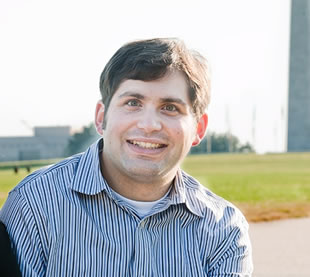
Navigating Sibling Conflicts During the Teen Years
Sibling rivalry or conflict is not anything new. When kids are young, it is very common for them to have conflicts with their siblings. At that age, it is often about insignificant things (i.e., he touched me, he looked at me funny). As children transition into the adolescent years, this type of sibling conflict often dissipates at least to some degree. Additionally, because of increased cognitive abilities, adolescents have the ability to reason, understand, and navigate conflicts in a different way.
During the teen years, it is often important for siblings to address conflicts with each other directly and not sweep things under the rug. Doing so (i.e., agreeing to disagree without understanding what the issue is) can sometimes lead to increased anger, hostility, and resentment about seemingly small things. This in turn can worsen the relationship over time and result in a falling out or decreased closeness between siblings in adulthood.
Here are some suggestions to help you navigate conflicts with your children during the teen years:
- Strive to understand what is underlying a given conflict. Sometimes it may be solely between two siblings (i.e., the younger brother wants to spend time with the older one and annoys him because that is how he has learned to get attention). Other times, the relationship between one sibling and his or her parents can impact the conflict. For example, if the younger sibling perceives the older sibling as being the favorite child, or always does better with school, sports, or a specific item, this can weigh on the younger child. As a result of feeling that he or she cannot measure up to the older sibling, the younger sibling may develop resentment towards the older sibling and this fuels conflict between them.
- Giving teen siblings opportunities to try to work things out themselves can be very helpful in many situations. At minimum, getting them to understand each other’s view point on something is crucial. When siblings can sit and talk themselves to address issues, that is great. If that is not feasible, being involved to help facilitate conversations on the issues can be useful, provided that you or the other parent are not directly connected to the conflict at hand. It is also important if you are involved in this way to try not to take sides, which could add to additional conflict. Furthermore, depending on the severity of the conflicts, professional assistance with a mental health professional can be helpful.
- Agreeing to disagree without each sibling understanding what the issue actually is serves as a short-term fix, but can actually make things worse over time. Specifically, if each sibling keeps doing the things that upset the other one, even little things that in of themselves would not be a big deal, may lead to increased resentment and anger. At the same time, it is ok to agree to disagree once each sibling understands the other one’s view point, because at that point, a deeper understanding can be obtained even if disagreement is still present. By validating each other’s perspective, it can lessen the long-term impact of the disagreement on the relationship.
- If one sibling is willing to talk about the issues, but the other one is not, this puts you as the parent in a difficult situation. If this occurs, it is suggested that you talk directly with the child who is unwilling to talk to their sibling to understand from their view point why they are not willing to talk to try to make things better. There may be several reasons why one child is not willing to talk, and the reason may help shed light on a deeper conflict or issue. Possible reasons include:
- Lack of interest in making things better.
- Difficulty tolerating strong emotions or discussing things of an emotional nature.
- The teen cannot articulate why he or she is angry or bothered by his or her sibling.
- Lack of insight into the conflict or limited self-awareness.
- The teen unconsciously gets a benefit out of maintaining the conflict with their sibling. For example, maintaining the conflict may lead to increased attention from parents, being able to use it as an excuse to avoid dealing with current life stressors (i.e., relationship issues, fears about transitioning to college), or even as a way to get back at the other sibling for whatever reason.
The take home message from this article is that it is important to help siblings address conflicts with each other and not just push them aside. By addressing them, it can help siblings to have stronger relationships with each other and not let other factors impede the quality or existence of a relationship between them in adulthood.
Copyright 2019 Carey A. Heller, Psy.D.
*Disclaimer: The previous information is intended as general guidance based on my professional opinion, does not constitute an established professional relationship, and should not replace the recommendations of a psychologist or other licensed professional with whom you initiate or maintain a professional relationship*










Engage us on Facebook
Follow us on Twitter
Tweets by @mymcmedia